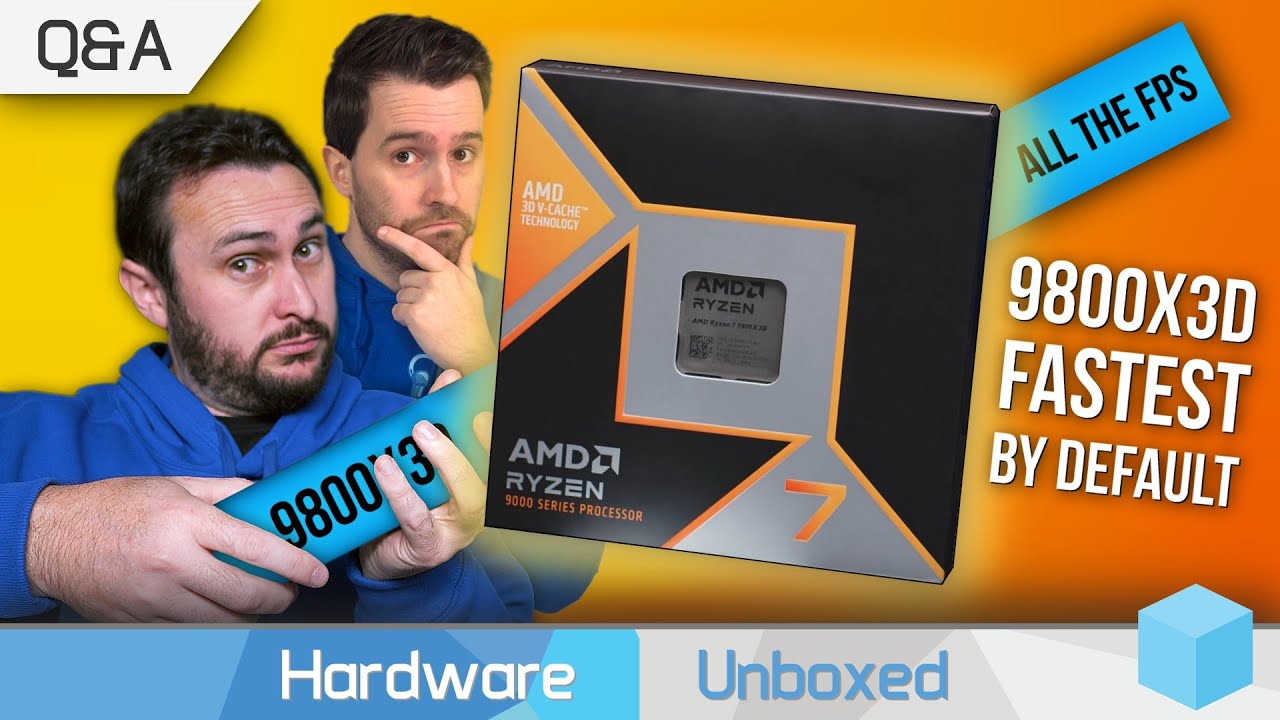The hosts discuss the expected performance of AMD’s upcoming 9800X3D CPU, suggesting it should achieve at least a 10% performance increase over the 7800X3D to avoid disappointment, especially in light of its anticipated pricing around $450-$500. They also criticize UserBenchmark for providing misleading information and express hope for future CPU advancements despite recent underwhelming launches from both AMD and Intel.
In the video, the hosts discuss the anticipated performance of AMD’s upcoming 9800X3D CPU compared to its predecessor, the 7800X3D. They suggest that for the new CPU not to be considered a disappointment, it should deliver at least a 10% performance increase over the 7800X3D, especially given the latter’s status as the fastest gaming CPU currently available. The hosts express concern that a minimal performance uplift (around 2-3%) would be unacceptable if the new CPU is also significantly more expensive. They acknowledge that while a 10% increase might seem modest historically, it would be considered substantial in the current market context.
The conversation shifts to the pricing of the 9800X3D, with the hosts speculating that it should ideally launch around $450-$500. They note that the price of the 7800X3D has fluctuated, which complicates the comparison. The hosts emphasize that the perceived value of the 9800X3D will depend heavily on its performance relative to its price, especially considering that the current market has seen significant price increases for CPUs. They highlight the importance of maintaining competitive pricing to avoid disappointing consumers who have invested in AMD’s platform.
The discussion then transitions to the relevance of UserBenchmark, a benchmarking site that the hosts criticize for its misleading information and perceived bias against AMD. They argue that while the site ranks highly in search results, it fails to provide accurate or trustworthy benchmarks, which could lead consumers to make poor purchasing decisions. They believe that most consumers are wise enough to consult multiple sources before making a decision, and they express confidence that the negative reputation of UserBenchmark is becoming more widely recognized.
The hosts also compare the recent launches of AMD’s Zen 5 and Intel’s Arrow Lake CPUs, noting that both have underwhelmed in terms of performance improvements. They attribute this to various factors, including design choices and the challenges of advancing CPU technology. While the performance gains have been minimal, they remain hopeful that future generations will build on the lessons learned from these launches, leading to better products down the line. They suggest that the disappointing performance of these CPUs does not necessarily indicate a trend of lackluster launches in the future.
Finally, the video concludes with the hosts reflecting on their motivation to continue creating content despite the challenges posed by underwhelming product releases. They express a commitment to providing accurate and helpful information to consumers, emphasizing that their goal is to recommend quality products. The hosts encourage viewers to stay engaged with their content through memberships and community interactions, reinforcing their dedication to producing insightful discussions about hardware and technology.
